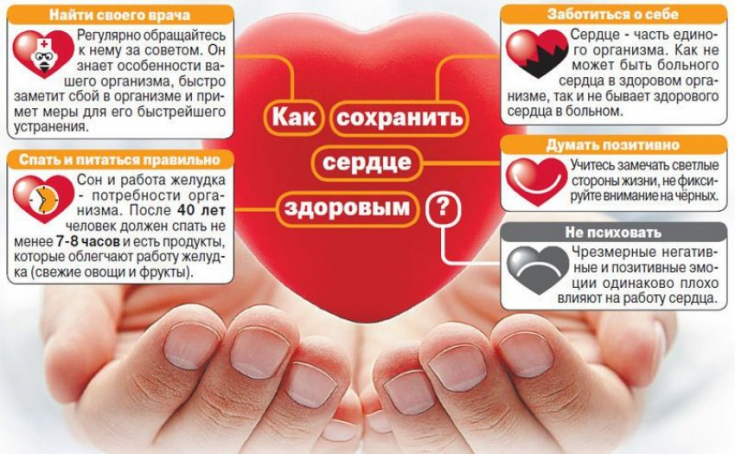Heart — amazing organ. It begins to work even before we are born, and for many decades it pumps blood uninterruptedly and tirelessly, thereby supporting the work of all internal organs.
But even the heart has there their their their their heart's occurs )))) accidental failure in the work of the main organ or a harbinger of a serious illness.
In order to recognize a possible problem in time, it is important to know the signs of heart disease, which do not always look threatening, but left unattended can cause serious complications.
Signs of heart disease: what what to look for
Cardiologists around the world do not get tired of reminding you that pain in the heart — far from the only and by the way, not the most common sign of heart problems. Even more than that: chest pain usually indicates a far-reaching disease that will not only require a lot of time for treatment, but also will cause many restrictions to — From correction of the diet to reducing the level of physical activity. Therefore, you should pay attention to the very first symptoms of a possible heart disease and signs that, at first glance, have nothing to do with the cardiovascular system.
1. Edema
In diseases of the heart, edema is usually observed by the end of the day in the area of \u200b\u200bthe lower extremities, and in the morning the face looks puffy. For heart diseases, the characters are bags under the eyes and hanging upper eyelids immediately after waking up.
2. Cough
If there are no other symptoms when coughing that could indicate diseases of the upper respiratory tract — This is an occasion to be examined by a cardiologist. It is especially important not to miss the time if the cough occurs mainly when the body is horizontal and is not accompanied by sputum.
3. Blueness or pallor
Blue or pale skin, nails, or lips — a very serious sign that indicates insufficient blood supply. This symptom can be present in many diseases, but heart disease should be ruled out first.

4. Pressure increase
If your blood pressure is consistently above 140/90 — this means that it is difficult for the heart to cope with loads. It works in "emergency mode" and it is important to correct the pressure in time and maintain it at an acceptable level in order to prevent severe cardiac dysfunction.
5. Increased fatigue
This symptom does not appear to be related to cardiovascular disease, but it sufferers of cardiac disease often complain of lethargy, drowsiness, sleep disturbances, and similar problems.
Read also: Heart attack in women: symptoms and features
6. Anxiety
Worry about and without — frequent companion of heart disease. In fact, the root cause lies in the & nbsp; disorders of the autonomic nervous system, which "generates" negative thoughts, fears, anxiety. But, since it is she who is responsible for frequency and heart rate, anxiety and heart disease — classic duet.
7. Shortness of breath
Often feeling short of breath — the only sign of heart disease. At the same time, even the most insignificant exertion can provoke shortness of breath: a change in body position, climbing one flight of stairs, an attack of coughing or laughing.
8. Sweating
Cold and profuse sweat, which is released regardless of ambient temperature or degree of physical activity — a reason to immediately consult a doctor.

9. Heartburn
The lower part of the heart is very close to the stomach. And heart pain can often be confused with digestion disorders. Consult your doctor if heartburn is not related to fatty or acidic foods, overeating, and other objective reasons.
Read also: Deadly danger: detecting and clot removal
10. Fever
This symptom is especially important to pay attention to if you during the last 2-3 weeks suffered flu or sore throat. Inflammatory heart diseases that develop as complications of acute respiratory infections and SARS — not rare.
Who is at risk group for heart disease
Cardiologists emphasize that special attention to any of the listed symptoms should be paid to those who are at risk for the development of heart disease. The likelihood of such diseases increases:
-
Overweight
-
Heart disease in one of the parents
-
Bad habits
-
Sedentary lifestyle
-
Frequent stress
-
Sleep deficiency
Warned — means armed. Arm yourself with this information and be attentive to the most hard-working and most important body — to your heart.
Read also: Signs of heart problems: how to know when it's time to cardiologist
You may be interested in: Arm Exercises.






Add a comment